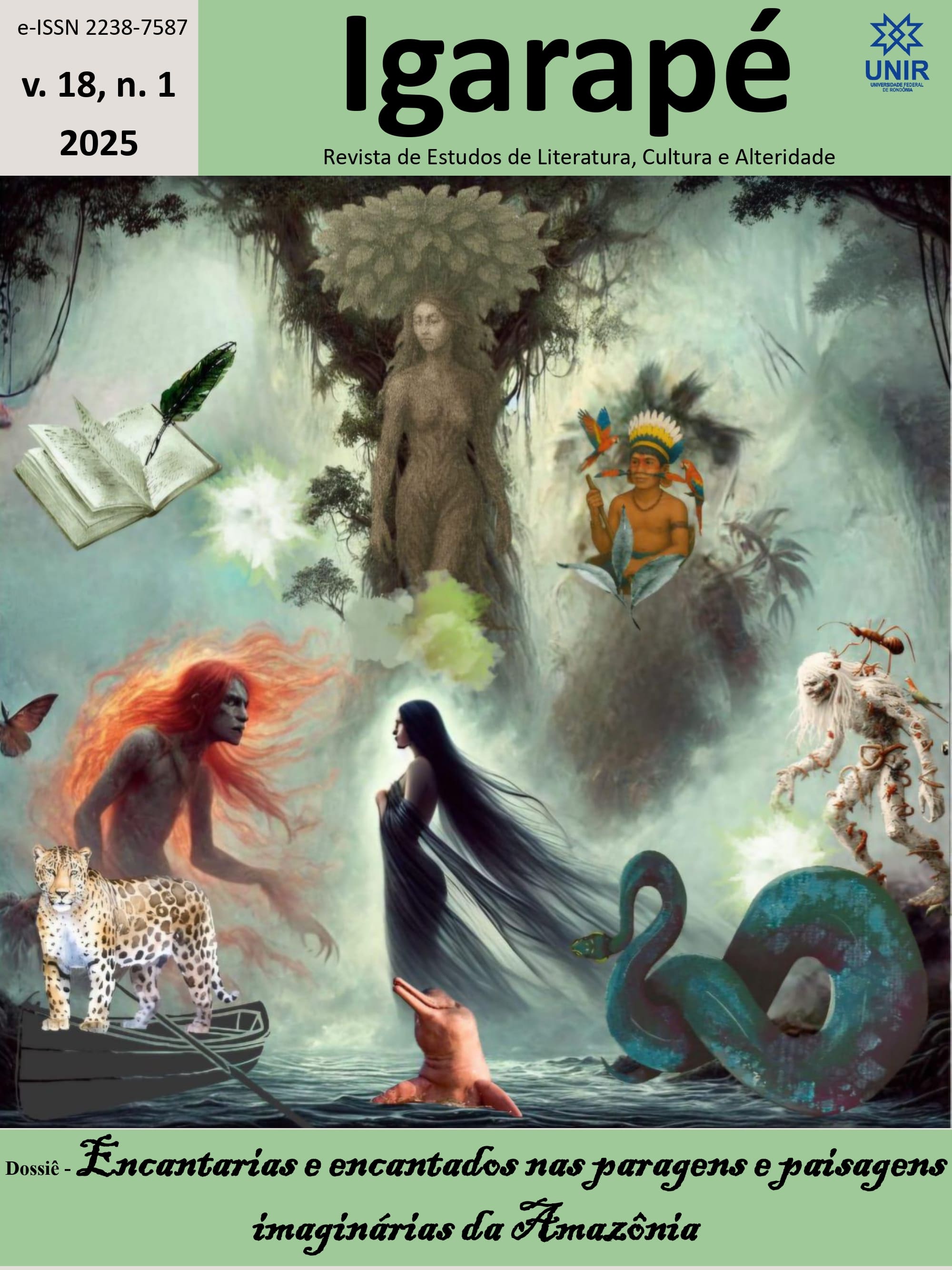Sparitsa
the enchanted amazon in the poetry of the Rikbaktsa voice
DOI:
https://doi.org/10.47209/2238-7587.v.18.n.01.8705Keywords:
Rikbaktsa People, Enchanted, Narrator, Narrative, Poetics of the VoiceAbstract
This study presents and analyzes an oral narrative of the Rikbaktsa people, which introduces us to the Sparitsa, an anthropomorphized being that materializes from the memories and voices of this people who have inhabited the Juruena River valley for millennia, being recorded in 2017, when a narrator revealed one of his enchanted beings to us. The narrative, which was collected in Aldeia União, a place that hosted a meeting of experienced narrators, will be analyzed in light of Raymundo Heraldo Maués (1995), Walter Benjamin (1987) and François Hartog (1999), who respectively address: the enchanted beings of the Amazon, the oral narrator and the narrative act; which is no longer so common today, as productive forces have increasingly shortened time and confined narrators. Thus, in this study, listening to others is a form of respect and also a return to the past, in search of the roots and essence of humanity, which we feel has been lost in the labyrinths of the Technological Revolution, the Industrial Revolution, and the Digital Age. During the analysis, what caught our attention in the figure of the enchanted one were the features similar to those of the colonizer: white skin and an intimidating posture. Over the years of research, I was possible to see that the Northwest region, even though it is not part of the publishing market, has Literature, which materializes in the weaving of the voices of its residents, and can be appreciated, witnessed, or researched through the sieve of literary criticism.
References
BENJAMIN, Walter. Magia e técnica, arte e política: ensaios sobre literatura e história da cultura. Obras escolhidas, v.1. 7 ed. [Trad. Sérgio Paulo Rouanet]. São Paulo: Brasiliense, 1987.
BRASIL. A carta de Pero Vaz de Caminha. Ministério da Cultura. Fundação Biblioteca Nacional. Departamento Nacional do Livro. Disponível em https://objdigital.bn.br/Acervo_Digital/Livros_eletronicos/carta. Acesso em 02 de ago. de 2023.
HARTOG, François. O Espelho de Heródoto. Ensaio sobre a O Espelho de Heródoto representação do outro. Belo Horizonte: Ed. da UFMG, 1999.
JOLLES, André. Formas simples. Trad. Álvaro Cabral. São Paulo: Cultrix, 1976.
MAUÉS, Raymundo Heraldo. Padres, Pajés, Santos e Festas: catolicismo popular e controle eclesiástico. Um estudo antropológico numa área do interior da Amazônia. Belém: Cejup, 1995.
TODOROV, Tzvetan. Os gêneros do discurso. Tradução de Elisa Angotti Kossovitch. São Paulo: Martins Fontes, 1980.
TREVIÑO, Maria Eugenia Flores. O assombro como origem da Literatura Mexicana. In Caderno de Cultura Nódoa no Brim. Diário da Serra. Edição 04 ISSN 2238-6467 – Tangará da Serra; Outubro de 201.
REIS, Vanilda. Os guardiões do vale Juruena: Rikbaktsa. Dissertação (mestrado em Estudos Literários) - Programa de Pós-graduação em Estudos Literários da Universidade do Estado de Mato Grosso (UNEMAT). Tangará da Serra, p 82. 2018.


